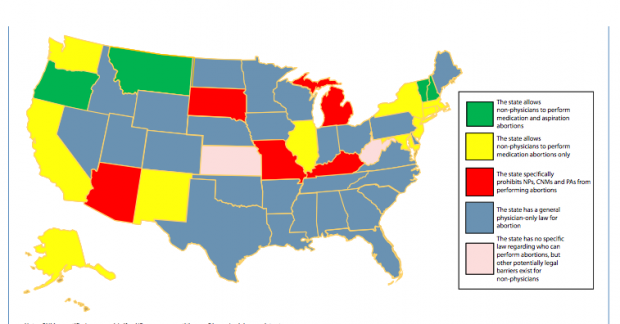
Tuesday afternoon, on the 40th anniversary of Roe v. Wade, a group of state lawmakers and women's advocates announced the introduction of a bill in the California Legislature aimed at expanding a woman's access to abortion. Currently in California, only physicians are authorized to conduct early abortions. This new bill, AB 154, would authorize other clinicians -- specially-trained nurse practitioners, certified nurse midwives and physician assistants -- to perform early abortions.
"As a former administrator of a health clinic, I know how important timely care is for women," Assemblymember Toni Atkins (D-San Diego), author of AB 154, said in a statement. "This bill will ensure that early abortion care will be available for women in California who need it."
Four other states permit nonphysician clinicians to perform early abortions. Still, clinical evidence of safety had been lacking. Last week, a new study led by researchers at UCSF showed that early abortions performed by trained nurse practitioners, certified nurse midwives and physician assistants are "clinically equivalent" to those performed by physicians.
"Early abortion is safer than we thought overall, and there's no difference in the complication rate between the two groups," said lead author Tracy Weitz, UCSF professor of obstetrics and gynecology. The research team found a two percent complication rate -- below the four percent rate they had expected. Complications were mostly minor.
In the study, published online by the American Journal of Public Health, researchers received a waiver from the state of California to permit training of nurse practitioners, certified nurse midwives and physician assistants to perform what are called surgical or aspiration abortions. Altogether, researchers analyzed more than 11,000 procedures.